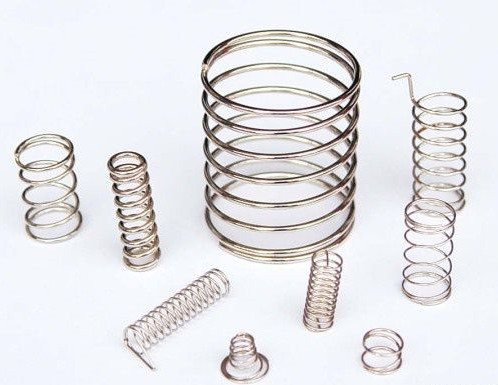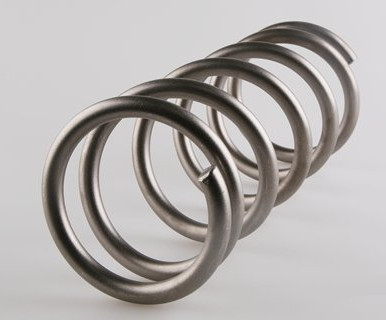
Spring is an unique part that is widely used in various fields, such as automobiles, motorcycles, bicycles, computers, clock etc. The spring’s primary function is stress absorption and energy storage.
Steel is now the most extensively used spring material, as it requires great strength and an elastic limit. However, as the steel’s strength and hardness grow, so does its sensitivity to stress concentration and inclination to spontaneously fracture under steady load. If the hardness is too low, the spring’s return ability will decline, or possibly fail, and the spring will lose its intended purpose. Regardless of whether the spring is a small element in an airplane or other devices, when it breaks and fails, it frequently causes the loss of operation of a specific device or system, and can have catastrophic implications.
As a result, the material’s quality has a direct impact on the spring’s lifespan. The most popular stainless spring steels are type 18-8 austenitic stainless steel and semi-austenitic precipitation hardening stainless steel. These steels have the required strength and flexibility, as well as strong corrosion resistance and the ability to perform at higher temperatures.
Titanium alloys have been a popular spring material in recent years due to its high specific strength, low elastic modulus, and corrosion resistance. Titanium springs offer the benefits of light weight, compact volume, and high resonance frequency over steel springs. Its density and elastic modulus are only half of those of steel springs, but its strength is about the same. Because of these benefits, titanium springs may be engineered to be smaller in diameter and have fewer turns than steel springs in practical applications, while also being lighter.
High strength is the most significant performance criterion for materials in the case of springs, therefore high-strength beta titanium alloys, such as Ti-3Al-8V-6Cr-4Mo-4Zr and Timetal LCB (Ti-6.8Mo-4.5Fe-1.5Al) alloy, are the ideal material for constructing springs.
Application

Titanium alloy springs are widely employed in the automobile sector, where they may be found in engine valve springs as well as suspension springs. Titanium springs are now being utilized in Formula One vehicles, racing motorbikes, and the most modern Ferrari vehicles. Titanium alloy springs have also been employed in the aerospace and chemical industries for a long time.
Titanium alloy springs will soon be extensively employed in the petrochemical, metallurgical, mining, and food processing sectors due to their compact size, light weight, superior corrosion resistance, and fatigue resistance.